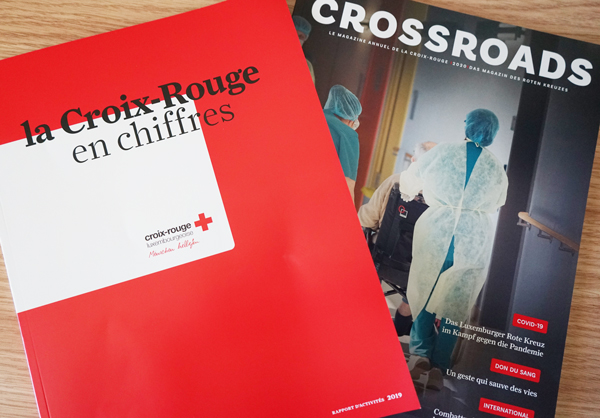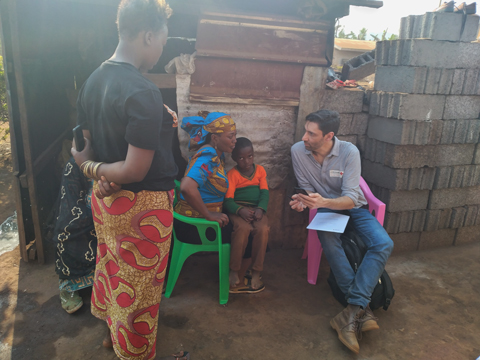29 July 2020

In 2019, the Luxembourg Red Cross continued to develop its activities in support of vulnerable people. In recent months, the coronavirus epidemic has been mobilizing all of the resources of the organization, which has been able to respond quickly and effectively in its areas of expertise.
During the presentation of last year’s activity report, the Red Cross management also recalled the continued commitment of its teams, in Luxembourg and internationally, in times of crisis.
Helping in a crisis situation is the raison d’être of our organization
Michel Simonis, Director-General of the Luxembourg Red Cross
Michel Simonis, Director-General of the Luxembourg Red Cross, as part of the presentation of the 2019 activity report, pointing out that “the current crisis reveals the relevance of past efforts.”
Marc Crochet, Deputy Director-General, adds: “In 2019, we strengthened our capacity to help vulnerable people in Luxembourg and around the world. While we have shown strength and agility to ensure continued support to the most vulnerable at the beginning of 2020, many other needs remain.”
Regarding the field of healthcare, the Colpach site has become a partner of choice for people in need of rehabilitation care, having welcomed more than 700 patients during this first year of full activity. The Luxembourg Red Cross Aides et Soins service expanded its offer in 2019, for example by opening a third supervised housing facility in Esch-sur-Sûre to meet the needs of the elderly.

“The Red Cross’s commitment in the field of housing was another major area of development in 2019. Our teams supported those who were struggling to find decent housing, whether they were seniors, single-parent families, young people without access to REVIS or beneficiaries of international protection,” Michel Simonis explains.
For example, the Yua group – the only one of its kind in Luxembourg – takes in young adult mothers with complicated family and social backgrounds. It provides them with a home, a stable living environment and professional supervision so that they can develop a bond with their child. In 2019 – the first year this group was fully active – the Red Cross housed 11 young mothers in this facility.
“Our teams have been fully mobilized over the past few months. They have had to adapt, for example by participating in the distribution of equipment for healthcare personnel and by opening “maisons relais” for their children at the height of the crisis,” continues Marc Crochet.
The Luxembourg Red Cross has also helped the health authorities by opening secondary centres for coronavirus patients not requiring acute care. At Colpach, for example, 80 beds have been made available. When it comes to homecare, the Red Cross reacted efficiently and swiftly to maintain quality care for its patients and preserve their health, while putting measures in place to ensure the safety of staff and beneficiaries.
Faced with the economic consequences of the health crisis for people in vulnerable situations, the Red Cross has decided to extended access to its “Butteker”. In addition to this, it has been involved in helping homeless people who are COVID-19 positive since the beginning of the crisis, offering them assistance and contributing to preserving their dignity.
Many solidarity initiatives, such as distributing masks to vulnerable people, were made possible thanks to the strong mobilization of individuals and companies. This wave of solidarity has been incredible!
MARC CROCHET, Deputy Director-General of the luxembourg red cross

Marc Crochet thanks the 13000 people who, in spite of the cancellation of the Red Cross traditional “Mois du Don”, supported the organisation with a donation, so that its teams can respond to the coronavirus epidemic. He also thanks all the donors who responded to the Red Cross’s call: in few weeks, a record of more than 1700 people volunteered to give blood for the first time, contributing to saving lives.
Efforts must continue in Luxembourg, but also internationally.
Rémi Fabbri, Director of International Aid for the Luxembourg Red Cross, says: “We are carrying out awareness-raising campaigns on health issues. We are continuing to distribute essential goods, especially in Africa. But this is not enough to meet all needs. That is why we have chosen to target the most vulnerable first: single mothers, and families fleeing violence.”
Emergency projects abroad launched before the epidemic began have been adapted to protect beneficiaries, who are typically the hardest hit by the current crisis.
